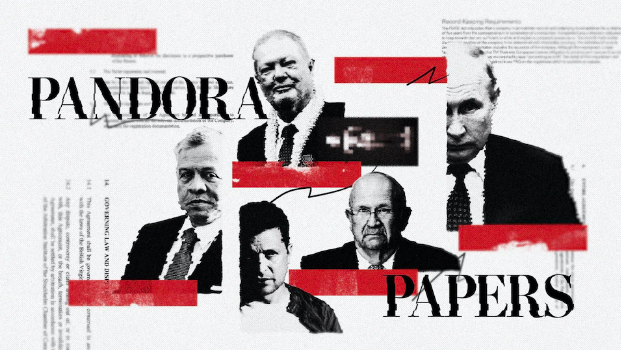By Grace Hwang
Millions of recently leaked documents, collectively known as The Pandora Papers, have uncovered the financial secrets of the world’s rich and powerful. The data was obtained by the International Consortium of Investigative Journalists (ICIJ), who led a team of more than 600 journalists from 150 news outlets over the course of two years, tracking down court records and other documents from dozens of countries, revealing the financial activities of world leaders and public officials. The papers, revealed to the public earlier this month, have provided a spotlight on the infiltration of deeply secretive finance in government and global politics, as well as highlighting the fact that those who could be putting an end to the offshore system are actually doing the opposite, actually using the system to benefit themselves instead.
Some of the findings include the use of offshore companies by country leaders, such as the $22 million chateau in the French Riviera by the prime minister of the Czech Republic, who had originally rose to power by promising to crack down on tax evasion and corruption, or the three beachfront mansions in Malibu purchased for $68 million by the King of Jordan in the years following Jordanian protests on joblessness and corruption. Stories have also been revealed about tax evasion among the mega-rich, such as the Qatari ruling family who avoided paying over $25 million in taxes on their London mansion.
These offshore territories are areas where it’s easy to set up companies, there are laws in place that make it difficult to identify owners of those companies, and there is low or no corporation tax. These regions are known as tax havens, and some of the most well known places include countries such as Switzerland and Singapore, as well as territories such as the British Virgin Islands. While loopholes in the law may make it certainly possible to evade taxes by moving money or companies to said tax havens, it is also seen as unethical. And although it is not illegal to have secretive offshore assets, using a complicated network of secret companies to move money can be used as a perfect method to cover up criminal processes and other dealings that public figures would prefer to keep under wraps.
It is impossible to determine exactly how much money is hidden offshore, but estimates range from $5.6 trillion to $32 trillion, costing governments around $600 billion in lost taxes each year. This can prove to be detrimental to society, as taxes affect everything from education to healthcare. The rich have continued to grow richer, while everyone else pays the price, and so, the Pandora Papers may go some way to expose this injustice and force corporations and individuals involved in this behavior to take accountability for their actions.










